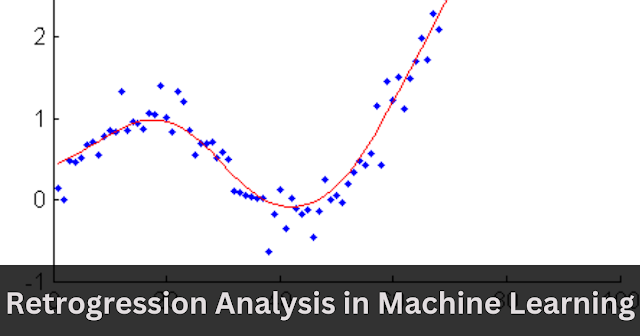Artificial Intelligence (AI) has emerged as a game-changing technology, revolutionizing various industries and paving the way for a future of unprecedented possibilities. By simulating human intelligence, AI enables machines to learn, reason, and make autonomous decisions. In this article, we will explore the potential of AI in transforming industries and shaping the future.
Understanding Artificial Intelligence (AI)
These tasks include visual perception, speech recognition, decision-making, problem-solving, and more. AI encompasses subfields such as machine learning, natural language processing, computer vision, and robotics.
The Role of AI in Transforming Industries
AI is profoundly impacting industries across the globe, driving innovation, improving efficiency, and unlocking new possibilities. Let's delve into some key sectors where AI is making a significant difference.
1. Revolutionizing Healthcare with AI
AI is revolutionizing healthcare by enabling early detection of diseases, assisting in diagnosis, optimizing treatment plans, and analyzing medical data for research purposes. Machine learning algorithms can sift through vast amounts of patient data to identify patterns and provide personalized care. AI-powered devices and wearables are also enhancing remote patient monitoring and improving healthcare outcomes.
2. Enhancing Education and Learning with AI
AI-powered virtual assistants and chatbots facilitate student inquiries and support administrative tasks. Furthermore, AI enables the analysis of educational data to gain insights into student performance and optimize curriculum development.
3. AI's Impact on Finance and Banking
AI is reshaping the finance and banking industry with applications such as fraud detection, risk assessment, algorithmic trading, and customer service chatbots. Machine learning algorithms can analyze vast financial data sets in real-time, identifying anomalies and potential risks. AI-powered chatbots offer personalized customer interactions, streamlining banking processes and enhancing user experiences.
4. AI and the Automotive Industry
The automotive industry is undergoing a remarkable transformation fueled by AI. Autonomous vehicles, enabled by AI technologies such as computer vision and sensor fusion, promise safer and more efficient transportation. AI is also improving vehicle diagnostics, predictive maintenance, and intelligent traffic management systems.
5. Transforming Manufacturing and Supply Chain Management
AI is driving advancements in manufacturing and supply chain management, optimizing production processes, predicting maintenance needs, and enabling predictive analytics for inventory management. Intelligent robots and automation powered by AI are enhancing efficiency and precision in manufacturing operations.
6. AI in Retail and Customer Experience
AI is revolutionizing the retail industry, enabling personalized shopping experiences, demand forecasting, and inventory management. Chatbots and virtual assistants help customers find products and provide tailored recommendations. AI-powered visual recognition technology facilitates seamless checkout processes and reduces friction in the shopping experience.
7. AI's Influence on Marketing and Advertising
AI is transforming marketing and advertising by analyzing consumer behavior, optimizing ad campaigns, and personalizing marketing messages. Machine learning algorithms can identify patterns in consumer data to target the right audience with relevant content.
Additionally, privacy concerns, data security, and bias mitigation are key aspects that need to be addressed to foster responsible AI development and adoption.
Overcoming Challenges in AI Implementation
The widespread adoption of AI faces challenges that need to be addressed. These include the availability and quality of data, ensuring robustness and reliability of AI systems, regulatory frameworks, and workforce upskilling. Collaborative efforts between governments, organizations, and researchers are vital to overcome these challenges.
The Future of AI and Its Potential
The future of AI is bright, with immense potential to shape industries and society. Advancements in AI algorithms, computing power, and data availability will further fuel innovation. AI will continue to drive automation, improve decision-making, and unlock new possibilities in healthcare, education, finance, transportation, and beyond.
Conclusion
Artificial Intelligence is a transformative force that is revolutionizing industries and pioneering the future. From healthcare and education to finance, automotive, manufacturing, retail, and marketing, AI is driving innovation and reshaping traditional processes. As AI continues to evolve, it is crucial to address ethical considerations and overcome implementation challenges to harness its full potential. Embracing the power of AI, we can unlock new frontiers and shape a future that benefits us all.
FAQs
1. Can AI completely replace human workers in various industries?
No, AI is designed to augment human capabilities and automate repetitive tasks. While AI can perform certain tasks more efficiently and accurately, human skills such as creativity, critical thinking, and empathy are irreplaceable.
2. How can organizations ensure the ethical use of AI?
Organizations must prioritize ethical considerations in AI development and use. This includes transparent and explainable AI algorithms, addressing bias in data and decision-making, and ensuring privacy and security of user data.
3. What are some potential risks associated with AI adoption?
Some potential risks include privacy breaches, algorithmic biases, job displacement, and overreliance on AI systems. It is essential to mitigate these risks through robust regulations, responsible AI practices, and ongoing monitoring and evaluation.
4. How can AI contribute to addressing global challenges?
AI has the potential to contribute to various global challenges such as healthcare access, climate change, and sustainable development. It can aid in disease diagnosis and treatment, optimize energy consumption, and enhance resource management through data-driven insights.
5. Will AI development lead to job loss?
While AI may automate certain job functions, it also creates new job opportunities. AI will change the nature of work, requiring upskilling and reskilling of the workforce to adapt to the evolving job market.

.png)

.png)
.png)
.png)
.png)
0 Comments